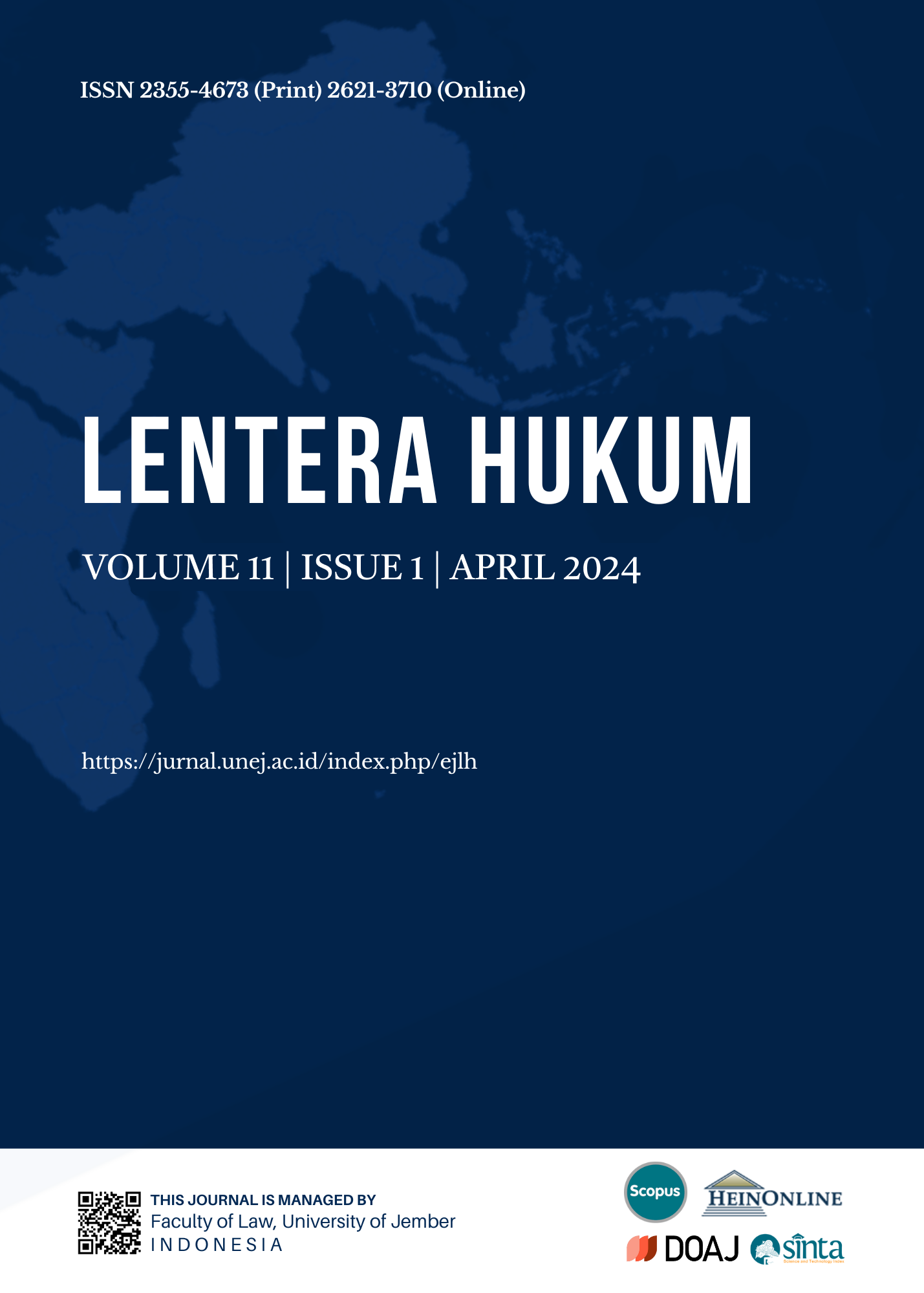Paradigm Shift of Death Penalty Regulation in the New Criminal Code (KUHP) of Indonesia
Abstract
The arrangement of death penalty in the new Criminal Code (KUHP) raises two different views between those who defend and reject death penalty. In this regard, this paper aims to find the reasoning for the retention of death penalty in the new Criminal Code, which was passed in 2022. This paper will also discuss what has caused the shift of death penalty allocation, from its position as a main to an alternative punishment with ten years’ probation period. The death penalty regulation in the Dutch Criminal Code is no longer in accordance with the development of punishment, so it requires a renewal. In the new KUHP, death penalty is the last resort and is imposed alternatively with a ten-year probation period. If the convict shows a good and commendable attitude during the imprisonment, then the death penalty can be changed into life imprisonment or imprisonment for a maximum of twenty years. The arrangement of a ten-year probation period is a middle way to accommodate views that reject and support the death penalty, which demonstrates the essence of shifting the allocation of death penalty to an alternative punishment in Indonesia.
KEYWORDS: Paradigm shift, Criminal Punishment, Death Penalty, Legal Reasoning, Indonesia.

This work is licensed under a Creative Commons Attribution-ShareAlike 4.0 International License.




